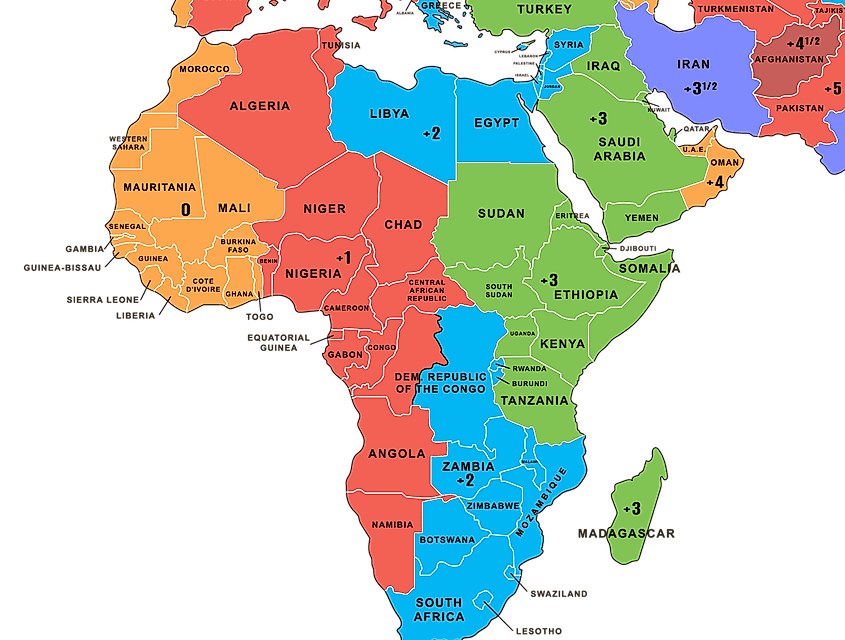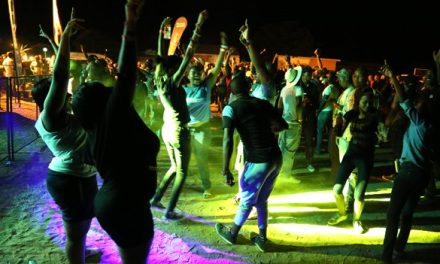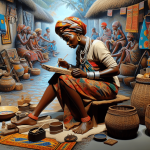So, you’re curious about the time zone in Botswana, huh? Well, let me tell you, it’s not as straightforward as you might think. Situated in southern Africa, this enchanting country lies right in the heart of the African continent. But when it comes to time, Botswana doesn’t conform to the usual time zone norms. In fact, it doesn’t even observe daylight saving time! So, if you’re planning a trip to Botswana or just want to know what time it is there, buckle up and let’s take a closer look at this captivating time zone puzzle.
Botswana’s Location
Geographical Location
Botswana is a landlocked country located in southern Africa. It is bordered by South Africa to the south and southeast, Namibia to the west and north, and Zimbabwe to the northeast. Despite being landlocked, Botswana is known for its diverse wildlife and stunning landscapes, including the Kalahari Desert and the Okavango Delta.
Neighboring Countries
Botswana shares its borders with four countries: South Africa, Namibia, Zimbabwe, and Zambia. These neighboring countries not only contribute to Botswana’s cultural diversity but also impact its time zone.
Time Zone in Botswana
Official Time Zone
Botswana follows the Central Africa Time (CAT) as its official time zone. This means that the country maintains a standard time that is used throughout its territory.
GMT Offset
The GMT offset, which stands for Greenwich Mean Time offset, is the difference between the local time in Botswana and Coordinated Universal Time (UTC). In Botswana, the GMT offset is GMT+2, meaning Botswana is two hours ahead of UTC.
DST (Daylight Saving Time)
Daylight Saving Time (DST) is the practice of adjusting clocks forward by one hour during the summer months to extend evening daylight. However, Botswana does not observe DST, so there are no changes in the standard time throughout the year.
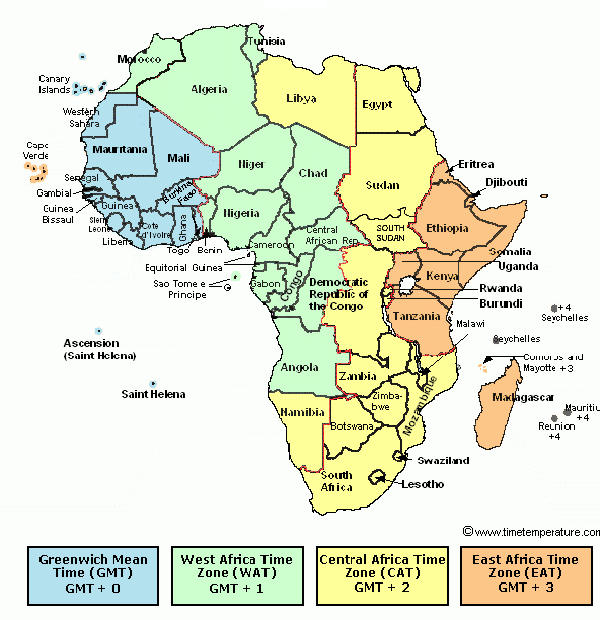
Reasons for Time Zone Determination
International Agreements
The establishment of time zones is determined by international agreements to promote global coordination. Countries agree to follow specific time zones to facilitate commerce, transportation, and communication between nations. Botswana’s adoption of the Central Africa Time (CAT) aligns it with neighboring countries and ensures coordination within the region.
Economic Factors
Economic factors also play a role in determining a country’s time zone. In Botswana’s case, following the Central Africa Time (CAT) allows for easier trading and business transactions with surrounding countries. It enables smoother coordination between companies and reduces potential time-related complications.
Geographical Considerations
Geography is another crucial factor in time zone determination. Botswana’s location in southern Africa, surrounded by countries that also observe the Central Africa Time (CAT), makes it logical for Botswana to adopt the same time zone. This geographical proximity ensures efficient communication and reduces confusion when scheduling cross-border activities.
Effect on Business and Communication
Time Difference Challenges
The time difference between Botswana and other regions can pose challenges to international businesses and communication. When conducting business with countries in different time zones, it’s essential to consider the potential difficulties that arise from varying working hours. These challenges can include scheduling conflicts, delays in receiving responses, and decreased productivity due to limited overlapping working hours.
International Meetings and Coordination
Coordinate international meetings and collaboration across different time zones can be complex. It is crucial for businesses and individuals in Botswana to be mindful of the time differences when scheduling meetings with participants from around the world. Effective communication and consideration of time zone disparities are key to ensuring efficient coordination.
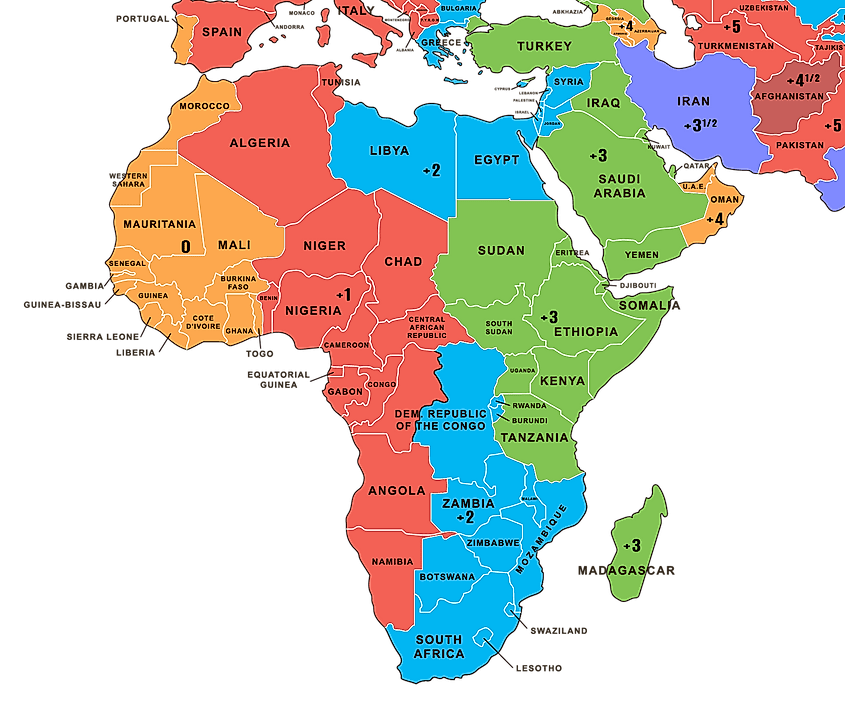
Time Zone Conversion Tips
Using Online Time Zone Converters
Online time zone converters are valuable tools to help navigate through different time zones. These converters allow you to input the date and time in Botswana and determine the corresponding time in other regions of the world. Utilizing these tools can assist in scheduling and ensure accurate coordination when engaging with individuals or organizations across various time zones.
Considering Business Hours
When conducting international business, it is important to consider the business hours of the countries you are working with. Understanding the standard working hours helps in avoiding disruptions or delays in communication. Being aware of the typical start and end times of businesses in different time zones can facilitate effective collaboration and reduce misunderstandings.
Dealing with Time Zone Challenges
Scheduling
To successfully navigate time zone challenges, proper scheduling is key. When planning meetings or events involving participants from different time zones, consider selecting a time that aligns with the most convenient working hours for all parties involved. This may require some flexibility and compromise to find a suitable time that accommodates time differences.
Effective Communication
Clear and timely communication is vital when dealing with time zone challenges. Ensure that all participants are aware of the scheduled time in their respective time zones and provide reminders to avoid any confusion. Additionally, leveraging technology such as video conferencing and email can help bridge the gap caused by time differences and facilitate effective communication.
Conclusion
Botswana follows the Central Africa Time (CAT) as its official time zone, being GMT+2. Despite not observing Daylight Saving Time, Botswana’s time zone determination is influenced by international agreements, economic factors, and geographical considerations. Understanding and addressing time zone challenges are important for businesses and individuals in Botswana to effectively communicate and coordinate with partners across different regions. By utilizing online time zone converters, considering business hours, scheduling strategically, and promoting effective communication, Botswana can overcome these challenges and foster successful international interactions.

